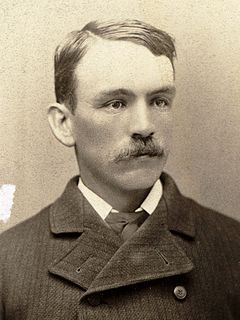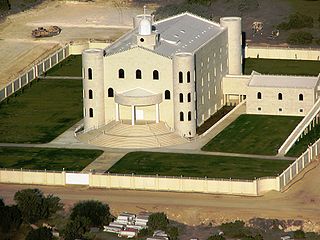| Look up fundamentalism in Wiktionary, the free dictionary. |
Fundamentalism refers to a variety of religious, political and ideological philosophies or movements.
Fundamentalism or Fundamentalist may also refer to:
| Look up fundamentalism in Wiktionary, the free dictionary. |
Fundamentalism refers to a variety of religious, political and ideological philosophies or movements.
Fundamentalism or Fundamentalist may also refer to:
Fundamentalism usually has a religious connotation that indicates unwavering attachment to a set of irreducible beliefs. However, fundamentalism has come to be applied to a tendency among certain groups – mainly, although not exclusively, in religion – that is characterized by a markedly strict literalism as it is applied to certain specific scriptures, dogmas, or ideologies, and a strong sense of the importance of maintaining ingroup and outgroup distinctions, leading to an emphasis on purity and the desire to return to a previous ideal from which advocates believe members have strayed. Rejection of diversity of opinion as applied to these established "fundamentals" and their accepted interpretation within the group often results from this tendency.

Christian fundamentalism, also known as fundamental Christianity or fundamentalist Christianity, is a religious movement emphasizing biblical literalism. In its modern form, it began in the late 19th and early 20th centuries among British and American Protestants as a reaction to theological liberalism and cultural modernism. Fundamentalists argued that 19th-century modernist theologians had misinterpreted or rejected certain doctrines, especially biblical inerrancy, which they considered the fundamentals of the Christian faith.
Islamic fundamentalism has been defined as a puritanical, revivalist, and reform movement of Muslims who aim to return to the founding scriptures of Islam. Islamic fundamentalists are of the view that Muslim-majority countries should return to the fundamentals of an Islamic state that truly shows the essence of the system of Islam, in terms of its socio-politico-economic system. Islamic fundamentalists favor a literal and originalist interpretation of the primary sources of Islam, seek to eliminate corrupting non-Islamic influences from every part of their lives, and see "Islamic fundamentalism" as a pejorative term used by outsiders for Islamic revivalism and Islamic activism.
Jewish fundamentalism may be used in reference to militant Religious Zionism or Haredi Judaism. The term fundamentalism was originally used in reference to Christian fundamentalism, but today, it is commonly used in reference to anti-modernist movements within different religion which are based on a literal interpretation of religious scriptures.
Messenger, Messengers, The Messenger or The Messengers may refer to:

Independent Baptist churches are Christian congregations, generally holding to conservative Baptist beliefs. The term independent refers to the doctrinal position of church autonomy and a refusal to join any affiliated Baptist denomination, convention or hierarchical structure.

Mormon fundamentalism is a belief in the validity of selected fundamental aspects of Mormonism as taught and practiced in the nineteenth century, particularly during the administrations of Joseph Smith, Brigham Young, and John Taylor, the first three presidents of The Church of Jesus Christ of Latter-day Saints. Mormon fundamentalists seek to uphold tenets and practices no longer held by mainstream Mormons. The principle most often associated with Mormon fundamentalism is plural marriage, a form of polygyny first taught in the Latter Day Saint movement by the movement's founder, Smith. A second and closely associated principle is that of the United Order, a form of egalitarian communalism. Mormon fundamentalists believe that these and other principles were wrongly abandoned or changed by the LDS Church in its efforts to become reconciled with mainstream American society. Today, the LDS Church excommunicates any of its members who practice plural marriage or who otherwise closely associate themselves with Mormon fundamentalist practices.
Fundamental may refer to:

The Apostolic United Brethren (AUB) is a Mormon fundamentalist group that practices polygamy. The AUB has had a temple in Mexico, since at least the 1990s, an endowment house in Utah since the early 1980s and several other locations of worship to accommodate their members in Wyoming, Idaho, and Montana.

Lorin Calvin Woolley was an American proponent of plural marriage and one of the founders of the Mormon fundamentalist movement. As a young man in Utah Territory, Woolley served as a courier and bodyguard for polygamous leaders of The Church of Jesus Christ of Latter-day Saints in hiding during the federal crusade against polygamy. His career as a religious leader in his own right commenced in the early twentieth century, when he began claiming to have been set apart to keep plural marriage alive by church president John Taylor in connection with the 1886 Revelation. Woolley's distinctive teachings on authority, morality, and doctrine are thought to provide the theological foundation for nearly ninety percent of Mormon fundamentalist groups.

The history of Islamic fundamentalism in Iran covers the historical development of Islamic fundamentalism, Islamism, Islamic revivalism, and the rise of political Islam in modern Iran. Today, there are basically three types of Islam in Iran: traditionalism, modernism, and a variety of forms of revivalism usually brought together as fundamentalism. Neo-fundamentalists in Iran are a subgroup of fundamentalists who have also borrowed from Western countercurrents of populism, fascism, anarchism, Jacobinism, and Marxism. The term "Principlists" or Osoulgarayan, is an umbrella term commonly used in Iranian politics to refer to a variety of conservative circles and parties. The term contrasts with reformists or Eslaah-Talabaan, who seek religious and constitutional reforms in Iran.

Leroy Sunderland Johnson, known as Uncle Roy, was a leader of the Mormon fundamentalist group in Short Creek, which later evolved into the Fundamentalist Church of Jesus Christ of Latter-Day Saints, from the mid-1950s until his death.
Alex Joseph was an American outspoken polygamist and founder of the Confederate Nations of Israel, a Mormon fundamentalist sect. As mayor of Big Water, Utah, Joseph was the first Libertarian Party mayor of a community in the United States.
The Church of the Firstborn is a grouping of competing factions of a Mormon fundamentalist religious lineage inherited, adherents believe, by a polygamous family community that had settled in Chihuahua, Mexico, by Alma Dayer LeBaron Sr. by 1924.

The term placement marriage refers to arranged marriages between members of the Fundamentalist Church of Jesus Christ of Latter-Day Saints. Placement marriage is believed and practiced by members of the FLDS Church to show their commitment and obedience in order to obtain salvation for themselves and their parents; it might be considered “the most visible outward symbol of members’ devotion."
Alma Adelbert "Del" Timpson, was an American Mormon fundamentalist leader. He was involved with a number of Mormon denominations, including the mainstream LDS Church, followed by the Council of Friends, and eventually heading the Centennial Park group, a fundamentalist sect headquartered in Centennial Park, Arizona. In each denomination he held positions of importance within the priesthood and leadership structures.
The Church of Jesus Christ of Latter-day Saints and the Kingdom of God is a Mormon fundamentalist church in the Latter Day Saint movement. The sect was founded by Frank Naylor and Ivan Nielsen, who split from the Centennial Park group, another fundamentalist church. The church is estimated to have 200–300 members, most of whom reside in the Salt Lake Valley. The group is also known as the Third Ward or the Naylor group, after Frank Naylor.
Christian Fundamentalism can refer to:
Fundamentalism is a monumental bronze sculpture by Jens Galschiot consisting of the letters in the word 'FUNDAMENTALISM'. The sculpture was finished in 2015 and is a part of the dialogue project The children of Abraham, also by Galschiot.

The Council of Friends was one of the original expressions of Mormon fundamentalism, having its origins in the teachings of Lorin C. Woolley, a courier and bodyguard for polygamous leaders of The Church of Jesus Christ of Latter-day Saints, who was excommunicated in 1924.